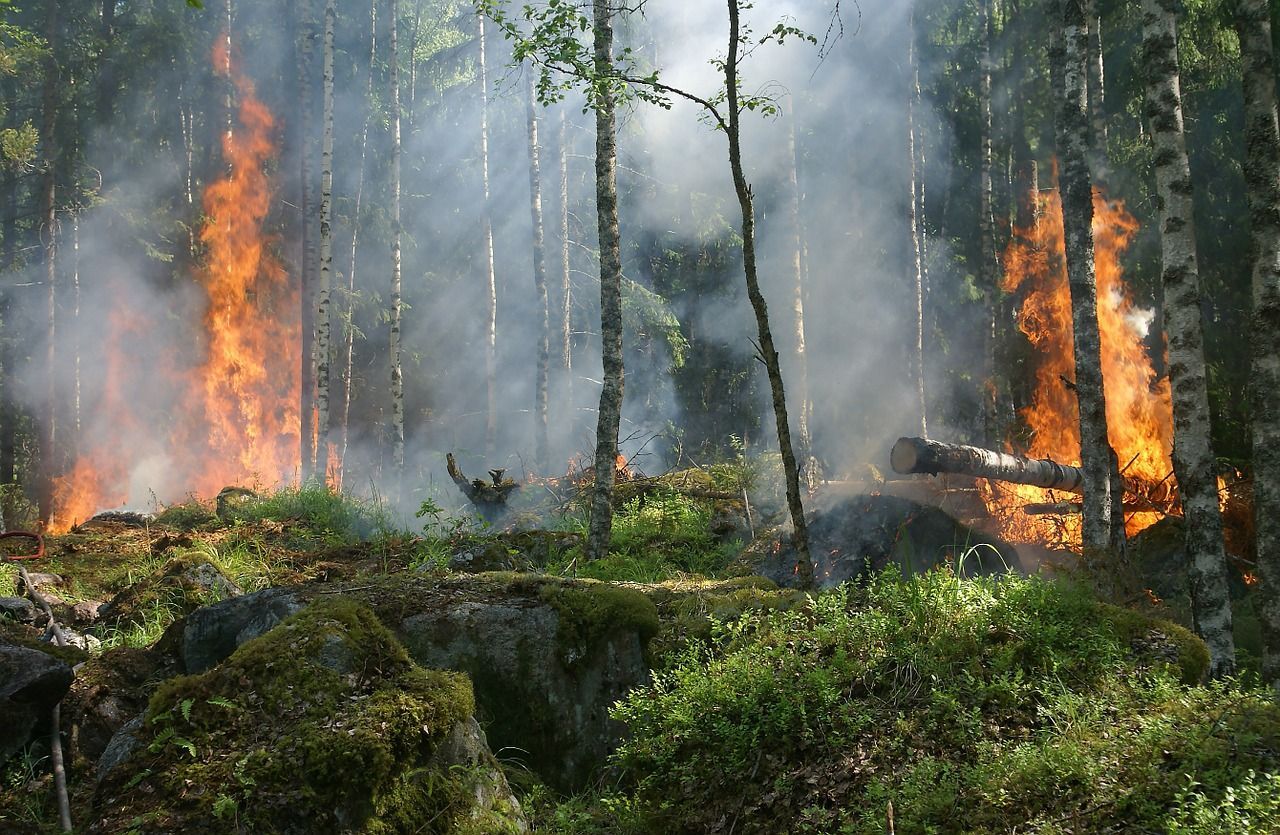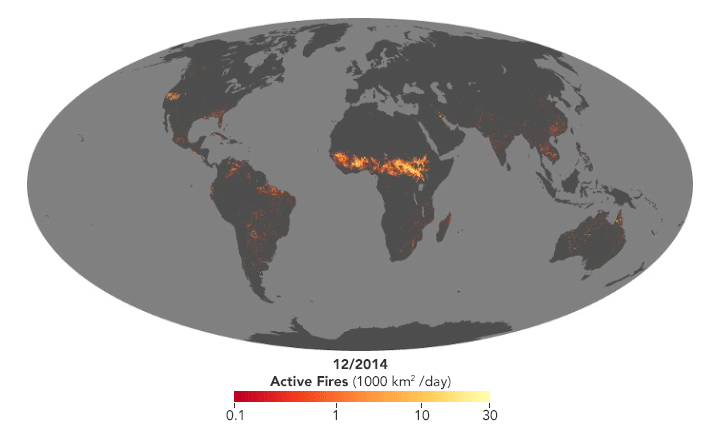
🔥 The size of the world's fires has decreased by 25 percent
Between 2003 and 2019, the size of the world's fires decreased by 25 percent, according to NASA.
Share this story!
Trying to control fire is a goal as old as mankind. But systematically monitoring fires on a global scale is a relatively new phenomenon. From having used lookout towers on mountain peaks and aircraft to, for the last few decades, deploying satellites to monitor the world's fires, our data is now more detailed and comprehensive than ever before.
Most information about the world's fires is gathered by the US space organization, NASA. They can show that the size of the world's fires decreased by 25 percent between 2003 and 2019.
Data showing this positive trend is from the MODIS instrument, which stands for Moderate Resolution Imaging Spectroradiometer, on NASA's Terra satellite.
On the most fire-ravaged continent, Africa, the size of fires between 2003 and 2015 decreased by 700,000 square kilometers. That corresponds to the surface area of the state of Texas.

Headlines in the media may lead one to believe that the fires globally are increasing in magnitude in the world, which is just not true. However, some areas have seen fires of increased intensity, often close to settlements, such as in eastern Australia and the US west coast.
Contrary to what some media may lead us to believe, it is not economic growth that is the cause of the fires. The fires are decreasing due to development and urbanization. This is because the amount of land converted to agricultural land is reduced, not increased, which is driven by more efficient agriculture where the land is processed with machines and not fire.
Want to get a dose of fact-based optimism in your mailbox once a week? Don't miss subscribing to our newsletter.
Warp News is run by the nonprofit Warp Institute, headquartered in Stockholm, Sweden and Raleigh, North Carolina, United States.
The world is better now than ever before!
But most people still have a negative view of the future. We think one important reason is the negative bias in news media.
Warp News balances that by delivering fact-based optimistic news.
By becoming a premium supporter, you help in the creation and sharing of fact-based optimistic news all over the world.


